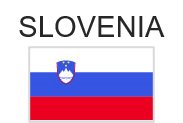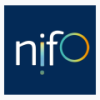This table here below aims at providing an overview of all the initiatives, such as the political communications, guidelines, and legislation, related to interoperability that have been put in place in Slovenia.

National Interoperability Framework
The National Interoperability Framework (NIF) is a set of standards, policies, and guidelines that ensure that information and communication technology (ICT) systems can communicate and share data seamlessly. It promotes the development of interoperable systems that facilitate data exchange and collaboration between different organizations and levels of government. The NIF provides a common language and a framework for ensuring that ICT solutions are compatible, secure, and reliable, which enhances the efficiency of public services and improves citizen outcomes.
|
National Interoperability Framework- NIO Year: 2010 |
The interoperability framework is a set of standards and guidelines aimed at ensuring the provision of services for public administration institutions, enterprises and citizens both in the national and the European context. |
Good Practices
This section provides examples at the national level in line with a selection of different thematic areas of the European Interoperability Framework (EIF). Further initiatives and good practices are available in the country’s Digital Public Administration Factsheet.
The Slovenian interoperability portal (NIO) is a national website for publishing and harvesting interoperability solutions of the public sector. Besides publications, the portal provides the main resources for keeping track and reuse various interoperability (technical, semantical, organisational, legal) solutions.
In Slovenia, central solution authentication and the e-Signature service SI-PASS are widely promoted to enable authentication and e-signature in a unique way. SI-PASS can be used independently of the user's environment and it enables authentication with suitable means of identification for the chosen method of login, i.e. digital certificates, mobile identity smsPASS (onetime-password based on text message SMS). The set of allowed means of authentication (depending also on the level of assurance) is determined by the service provider of each electronic service, depending on the sensitivity of the service. For electronic services requiring reliable user identification, a qualified digital certificate or a mobile identity of smsPASS is required. Moreover, the new electronic identity card was introduce in 28 March 2022 as new electronic identity means.
Slovenia's Digital Public Services Strategy 2030 sets out a clear direction for the accessibility of standards for the development of digital public services. The action plan for the Strategy consists of 109 specific measures from 26 competent authorities and includes actions supporting public service accessibility and will be updated every two years. The strategy and the action plan are available on the platform.
Several guidelines address the most important requirements to be followed in the development of information solutions. Such guidelines are useful for developing information solutions that are intended for all those stakeholders involved in the development of solutions in the field of ICT or the commissioning of new products, services, systems or individual solutions and applications. The guidelines address the most important requirements to be followed in the development of information solutions and are available on the NIO portal. The following are the main documents that can be found:
- Guidelines for information solution development which covers all project phases, from specifications, best development practices, usage of reusable building blocks, to steps toward production;
- Guidelines for architectural and engineering services contracts which is based on the provisions of the Public Procurement Act (PPA-3) and provide suitable and harmonised (with PPA-3) references, directions and suggestions on the most appropriate procurement process for architectural and engineering services contracts;
- Guidelines for ingest, digital preservation, and access to cultural heritage e-contents;
- Guidelines of the Information Commissioner of the Republic of Slovenia for the development of information services, encompassing personal data processing.

